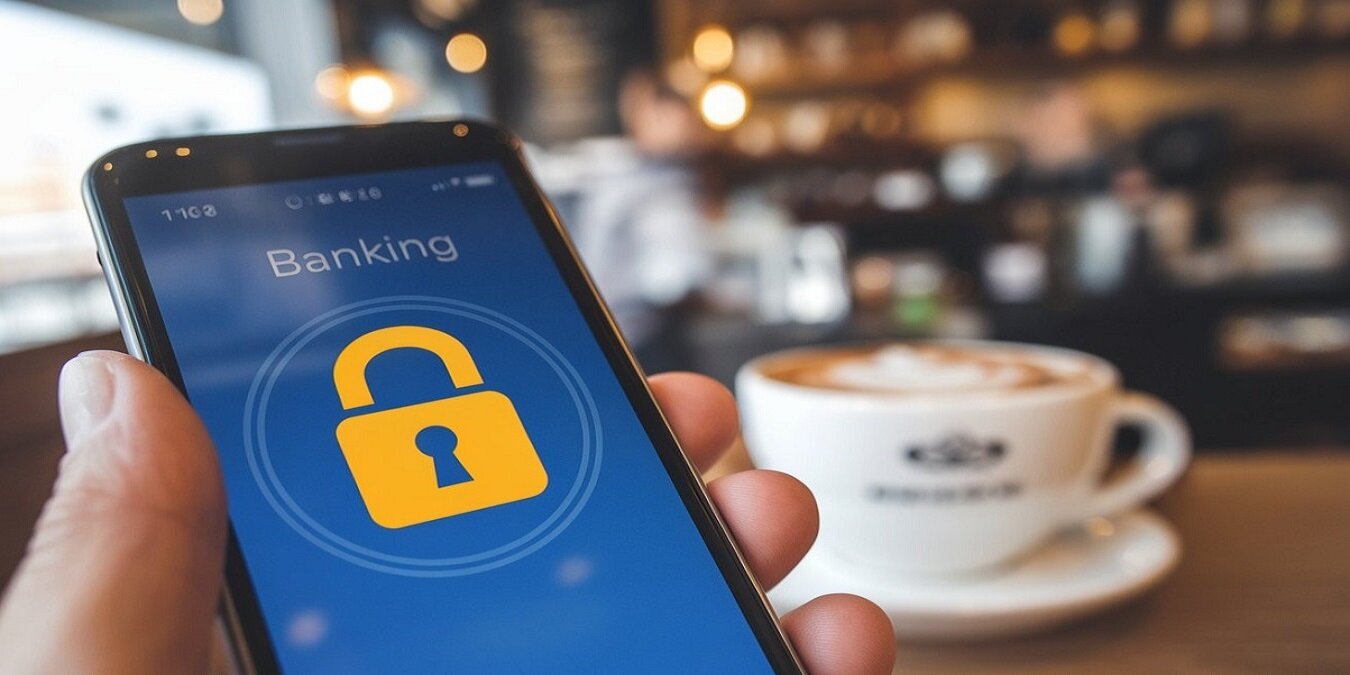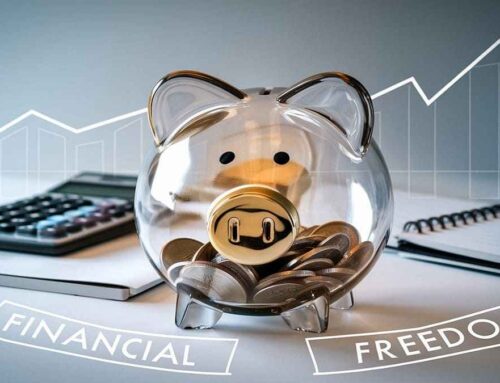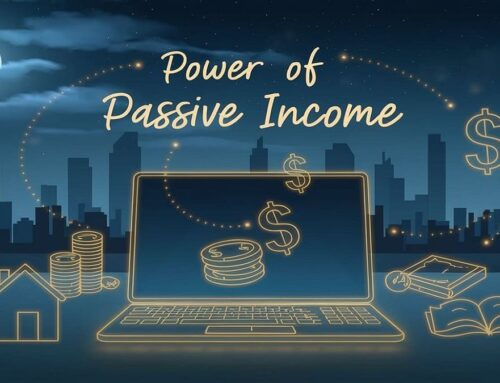
Is Online Banking Safe
Imagine this: you’re sitting at your favorite coffee shop, sipping on a warm latte and you pull out your smartphone to check your bank balance. With just a few taps, you access your accounts, pay bills and transfer money, all while enjoying your favorite brew. It feels convenient, right? But as you scroll through your transactions, a nagging thought creeps in: Is this safe?
Online banking has revolutionized how we manage our finances, offering unparalleled convenience. Yet, with that convenience comes a cloud of concern over security. You might be wondering if your hard-earned money is truly safe in the digital realm. Let’s dive into the world of online banking safety and arm you with tips to secure your banking experience in the U.S.
The State of Online Banking Security
Let’s set the stage. According to recent reports, around 75% of Americans use online banking. It’s not just a trend; it’s a way of life. However, with that widespread adoption comes a range of cyber threats. In 2022 alone, financial fraud losses in the U.S. reached a staggering $5.8 billion. That’s billion with a “B.”
What does this mean for you? It highlights the necessity of being vigilant. Understanding the potential risks associated with online banking is the first step toward safeguarding your finances.
Common Threats to Watch Out For
- Phishing Attacks: You receive an email that looks like it’s from your bank, urging you to click a link to verify your account. It’s enticing, but it’s a trap. Phishing scams have become increasingly sophisticated, mimicking legitimate banks perfectly.
- Malware and Spyware: If you download a malicious app or click on a shady link, you could unknowingly install malware on your device. This can lead to stolen passwords and sensitive information.
- Wi-Fi Risks: Public Wi-Fi networks might be convenient, but they’re also breeding grounds for hackers. Using these networks to access your banking app can expose you to significant risks.
- Data Breaches: Even the most secure banks can fall victim to data breaches. If your bank’s data is compromised, your personal information could be at risk.
Is Online Banking Safe?
Here’s the million-dollar question: Is online banking safe? The answer isn’t black and white. Online banking is generally secure, thanks to robust encryption methods and security protocols. However, it’s not foolproof.
Consider this: Your safety largely depends on the precautions you take. While banks invest heavily in security measures, your vigilance plays a crucial role. Think of it like this: you wouldn’t leave your front door wide open in a busy neighborhood, right? The same principle applies to online banking.
Tips for Secure Online Banking
Now that you’re aware of the risks, let’s explore practical steps you can take to secure your online banking experience.
1. Use Strong, Unique Passwords
You’ve heard this before, but it’s worth repeating: use strong, unique passwords for your banking accounts. Avoid using easily guessable information like birthdays or pet names. Instead, aim for a mix of uppercase and lowercase letters, numbers and special characters.
Consider using a password manager. These tools can generate and store complex passwords, so you don’t have to remember them all.
2. Enable Two-Factor Authentication (2FA)
Two-factor authentication adds an extra layer of security. With 2FA, even if someone steals your password, they won’t be able to access your account without the second form of verification. This could be a text message, an authentication app or even a fingerprint scan. It’s a simple yet powerful way to protect your finances.
3. Keep Your Software Updated
Outdated software can be a hacker’s playground. Regularly update your operating system, browser and banking apps. These updates often include security patches that protect against the latest threats. It might seem tedious, but think of it as locking your doors at night.
4. Avoid Public Wi-Fi for Banking
Public Wi-Fi networks may be convenient, but they’re not secure. If you can, avoid accessing your bank account on these networks. If you must use public Wi-Fi, consider using a Virtual Private Network (VPN). A VPN encrypts your internet connection, making it more difficult for hackers to intercept your data.
5. Monitor Your Accounts Regularly
Make it a habit to check your bank statements and account activity regularly. Set up alerts for any unusual transactions. If something looks off, report it to your bank immediately. The sooner you act, the better your chances of resolving any issues.
6. Be Wary of Phishing Scams
Stay alert for phishing attempts. If you receive an email or text message that seems suspicious, don’t click any links. Instead, go directly to your bank’s website or app. Remember, legitimate banks will never ask you for sensitive information via email.
7. Secure Your Devices
Ensure your devices are secure. Use antivirus software and enable firewalls. This helps protect against malware and other threats. Additionally, avoid downloading apps from unofficial sources. Stick to reputable app stores to minimize risks.
8. Log Out After Each Session
When you finish banking online, always log out of your account. This might seem like a small step, but it’s an effective way to prevent unauthorized access, especially if you’re using a shared or public computer.
9. Beware of Unsolicited Calls
If you receive a call claiming to be from your bank asking for your personal information, hang up. Scammers often use this tactic to steal sensitive data. If you’re unsure, call your bank directly using a trusted number.
10. Educate Yourself
Stay informed about the latest security threats. Cybersecurity is an ever-evolving field and new risks emerge regularly. By educating yourself, you can better prepare for potential dangers. Consider following reputable sources of information on cybersecurity and online banking safety.
What to Do if You’re a Victim of Fraud
Despite your best efforts, fraud can still happen. If you suspect that your account has been compromised, take immediate action:
- Contact Your Bank: Report any suspicious activity to your bank as soon as possible. They can help secure your account and guide you through the next steps.
- Change Your Passwords: Immediately change your banking passwords and any other accounts that use the same credentials.
- Monitor Your Accounts: Keep a close eye on your accounts for any further unauthorized transactions.
- Consider a Credit Freeze: If you suspect identity theft, consider placing a freeze on your credit. This can prevent new accounts from being opened in your name.
- Report to Authorities: If you’ve been a victim of fraud, report it to the Federal Trade Commission (FTC) and your local law enforcement. This helps in tracking down scammers and may aid in your recovery process.
The Future of Online Banking Security
As technology advances, so do the methods employed by cybercriminals. However, banks are also ramping up their security measures. Innovations such as biometric authentication and AI-driven fraud detection systems are becoming increasingly common.
While these advancements enhance safety, the responsibility for securing your online banking experience remains largely in your hands. Being proactive is key.
In Conclusion
So, is online banking safe? The short answer is yes, if you take the necessary precautions. Embrace the convenience of online banking, but don’t let your guard down.
By adopting strong security practices, staying informed and being vigilant, you can navigate the world of online banking with confidence. Remember, the goal is not just to manage your money efficiently but to protect it as well.
As you sit in your favorite coffee shop, sipping your latte, you can enjoy your online banking experience, knowing you’re doing everything you can to keep your finances safe. Stay secure out there!
About the Author: Sandip Goyal
Related Posts
10 Comments
Leave A Comment
Categories
- Business Growth Strategies (146)
- Customer Experience and Retention (23)
- Digital Marketing and SEO (29)
- Financial Planning and Investment (25)
- Leadership and Team Management (28)
- Personal Development and Productivity (71)
- Technology and Innovations (53)
Subscribe To Our Newsletter
-
How to Create a Winning Sales FunnelDecember 20th, 2023
-
The 10 Greatest Business Books of All TimeApril 8th, 2024
-
7 Proven Methods for Growing Your BusinessDecember 20th, 2023
-
Digital Transformation Surge: 5 Shifts Every Leader Must Act On NowAugust 9th, 2025
-
Hyper-Personalization: Boosting E-commerce Growth NowJuly 30th, 2025
-
How To Rank Number 1 On Google Search ResultsJuly 25th, 2025
-
Happy Customers: The Ultimate Retention PlaybookJuly 23rd, 2025















I am glad to be a visitant of this consummate web blog! , thanks for this rare information! .
Someone necessarily lend a hand to make significantly posts I might state. That is the first time I frequented your web page and up to now? I surprised with the research you made to make this particular post extraordinary. Fantastic task!
Absolutely written subject material, thanks for selective information.
I just couldn’t depart your website before suggesting that I really enjoyed the standard info a person provide for your visitors? Is gonna be back often to check up on new posts
I have not checked in here for a while as I thought it was getting boring, but the last several posts are good quality so I guess I’ll add you back to my everyday bloglist. You deserve it my friend :)
Very interesting topic, appreciate it for putting up.
Some really wonderful work on behalf of the owner of this site, perfectly great subject matter.
Great wordpress blog here.. It’s hard to find quality writing like yours these days. I really appreciate people like you! take care
Somebody essentially help to make seriously articles I would state. This is the first time I frequented your web page and thus far? I amazed with the research you made to create this particular publish incredible. Excellent job!
Hello.This article was extremely motivating, particularly because I was browsing for thoughts on this matter last Saturday.